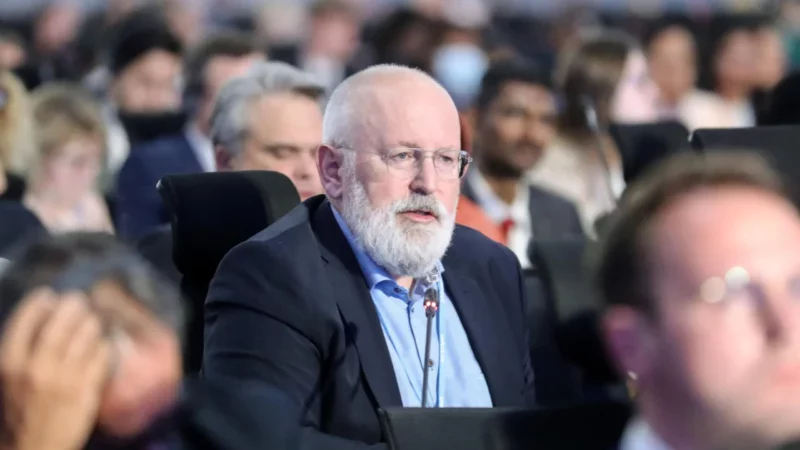EU climate chief Frans Timmermans on Thursday said he wants to become the next Dutch prime minister and will contest a parliamentary election in the Netherlands in November, meaning he will no longer lead the EU’s climate policy at home and abroad.
Timmermans has led the climate policy of the EU’s executive arm, the European Commission, since December 2019. He led the EU’s delegation to three Cop climate talks but he will not do so at Cop28 in December.
His successor currently unknown but may be just a stop-gap until the next set of commissioners come into power next year, around June. One commissioner from each country is nominated by each of the EU’s member states.
Under Timmermans leadership, the EU pushed internationally for measures to cut methane emissions at Cop26, ended its long-standing opposition to a loss and damage fund at Cop27 and is pushing for a commitment to phase out fossil fuels and ramp up renewables at Cop28.
Domestically, during Timmermans tenure the EU set to target net zero by 2050 and to reduce emissions 55% by 2030 on 1990 levels through a package of measures known as “fit for 55”. But the bloc was widely criticised for endorsing gas as a transition fuel last year.
Alessia Virone, Clean Air Task Force’s European government affairs director, told Climate Home Timmermans would be missed.
“He was the driving force for the green deal,” she said, “now we will have to see who will ensure the remaining green deal legislations are going across the finishing line”.
The 62-year old speaks English, German, French, Italian and Russian in addition to his native Dutch. He is known for speaking frankly and emotionally at international climate talks. At Cop27, he threatened to walk away from talks unless he won concessions before failing to follow throw on that threat, saying that to do so would hurt vulnerable countries.
At a summit to discuss adaptation finance last September, he told African leaders that many European citizens would not be persuaded by the “moral point that those suffering the most consequences are not responsible for creating the crisis” because “what is closer to your own worries is always bigger on your agenda than someone else’s worries”.
Dutch opening
Before joining the European Commission in 2014, Timmermans was the Dutch foreign minister. He represented the centre-left Labour Party in a coalition government led by Mark Rutte.
Earlier this month, Rutte’s latest coalition government collapsed after failing to reach an agreement on restricting immigration, triggering a vote on Nov. 22.
Timmermans formally announced his candidacy to lead the ticket for Labour and Green Left parties, which are joining forces in a bid to stem a decline in support for left-leaning parties.
“This morning I told the Labour and Green Left parties that I would love to be a candidate to lead them in the next elections,” Timmermans said on national Dutch television.
An EU commission spokesperson declined to comment on his possible departure, first reported by Dutch newspaper de Volkskrant.
He was expected to leave his EU post before the autumn to join campaigning in the Netherlands.
This article was updated to include Alessia Virone’s comment on 20 July
